New Delhi: With more than a week to Saudi diplomat rape case, National Security Advisor (NSA) Ajit Doval has stepped in to resolve the issue in the interest of bilateral relations between India and Saudi Arabia.
“There is expectation that both sides may come to an understanding on the fate of the diplomat early this week,” a Times of India report said.
The report also said that the Saudis have denied any rape, which was stressed in the only public statement made by the embassy and also denied charges that the Nepalese women were confined to the house.
In addition, Nepal Embassy officials are demanding justice to the victims. Officials are also expected to meet their Saudi embassy counterparts today to discuss the matter.
The Saudis have already expressed their unhappiness over the way Gurgaon police conducted the whole matter. According to them, police officials violated the diplomat’s privacy by entering his home without permission.
Meanwhile, the Government of India has asserted that the police did not seek the Foreign Ministry’s nod before conducting the raid to rescue the victims, and the raid was halted after the ministry reached out to Gurgaon police.
India had earlier asked Saudi Arabia to waive the official’s diplomatic immunity and cooperate in the investigation,
The two Nepalese women have alleged that they were confined and raped by the diplomat and his “guests” repeatedly at a flat in Gurgaon on the outskirts of the national capital after which the local police filed an FIR in the matter.
An 18-year-old rape victim was on Sunday shot dead allegedly by bike-borne youths in Baijapur village in Dakshintola area, two days before she had to appear in a court as witness in the case, police said.
The incident occurred when the girl along with her brother was going to visit a doctor, and died of bullet injuries on the spot, they said.
The girl was allegedly raped on June 6, 2011 by one BK Singh, Manager of a college, police said, adding the case was going on in the local court, where she had to appear as witness after two days, they said.
The victim’s family members have alleged that she was killed upon the directions of the rape accused, they said.
Police is trying to workout the case and the guilty will not be spared, Additional Superintendent of Police Sunil Kumar Singh said.
New Delhi: Jitan Ram Manjhi has persuaded the BJP to part with a few more seats than the senior partner had brought to the negotiation table, but it still does not match Ram Vilas Paswan’s 40.
After multiple meetings, BJP chief Amit Shah announced how his party and its three regional allies will divide seats in Bihar: The BJP will contest 160 of the 243 seats, Mr Paswan’s Lok Jan Shakti Party will contest 40, Upendra Kushwaha’s Rashtriya Lok Samata Party will contest 23 seats and Jitan Ram Manhji’s newly minted Hindustani Awaam Morcha (Secular) also called HAM, will contest 20.
Mr Shah said a few people from Mr Manjhi’s party will also contest as BJP candidates, rejecting reports of squabbles over seats. “There is no tug of war in the NDA over seat sharing,” Mr Shah said as he announced what is being seen as a neat face-saver for all sides after a fairly aggressive tussle over the weekend.
Jitan Ram Manjhi, who briefly served as Bihar chief minister a few months ago as a member of Nitish Kumar’s Janata Dal United, was adamant that his party must be given as many seats to contest as Mr Paswan’s party. He argued that he has greater influence among the deprived Dalits and Mahadalits, a sizeable chunk of voters in Bihar, where caste and community have played a major role in deciding elections.
The BJP had offered 15 seats to Mr Manjhi. He wanted 40. The middle path was found this morning and Mr Shah was flanked at his press conference today by a smiling Mr Manjhi and Mr Paswan.
The BJP has rationed seats among its allies in a way that it can contest enough to have a chance at winning a majority, at 122 seats, on its own.
It takes on an alliance led by Chief Minister Nitish Kumar, who is seeking a third term. Mr Shah said today that the BJP’s coalition will decide who will be chief minister only after the elections, which will be held in five phases beginning next month.
Votes will be counted on November 8.
The father of drowned Syrian toddler Aylan Kurdi was working with smugglers and driving the flimsy boat that capsized trying to reach Greece, other passengers on board said, in an account that disputes the version he gave last week.
Ahmed Hadi Jawwad and his wife, Iraqis who lost their 11-year-old daughter and 9-year-old son in the crossing, said that Abdullah Kurdi panicked and accelerated when a wave hit the boat, raising questions about his claim that somebody else was driving the boat. A third passenger confirmed their version of events, which could not independently verify. “The story that (Aylan’s father) told is untrue. I don’t know what made him lie, maybe fear,” Jawwad said in Baghdad at his in-laws’ house on Friday. “He was the driver from the very beginning until the boat sank.”
He said Kurdi swam to them and begged them to cover up his true role in the incident. His wife confirmed the details. Jawwad said his point of contact with the smugglers was called Abu Hussein. “Abu Hussein told me that he (Kurdi) was the one who organised this trip,” he said. Reuters tried several times to speak to Kurdi by telephone from the Syrian city of Kobane but was unable to reach him. Abu Hussein also could not be reached. However, Kurdi told Britain’s MailOnline that the accusations were untrue. “I thought about driving the boat but I didn’t do it. That is all lies,” he said. “This is not true. If I was a people smuggler, why would I put my family in the same boat as the other people? I paid the same amount to the people smugglers,” he told the newspaper.
In comments to Kurdish news outlet Rudaw this week, Kurdi blamed a Turkish smuggler but did not name him. Amir Haider, 22, another Iraqi who said he was on the same boat, confirmed Jawwad’s account and identified Kurdi as the driver. He said by telephone from Istanbul that he initially thought Kurdi was Turkish because he was not speaking, but later heard him talking to his wife in Syrian Arabic.
A photo of Aylan Kurdi’s body in the surf off a popular Turkish holiday resort prompted sympathy and outrage at the perceived inaction of developed nations in helping thousands of refugees using dangerous sea-routes to reach Europe, many of whom have fled Syria’s four-year civil war.
BJP’s student wing Akhil Bharatiya Vidyarthi Parishad swept Delhi University Students’ Union (DUSU) elections on Saturday, winning posts of President, Vice-President,Secretary and Joint Secretary defeating Congress-affiliated National Students’ Union of India (NSUI).
AAP’s student wing Chhatra Yuva Sangharsh Samiti (CYSS) participated in the student polls for the first time. The votes split between CYSS and NSUI seem to have given ABVP an edge in the polls.
Here is a breakdown of how the university voted-
President
Name Party Votes
Satendra Awana ABVP 20, 439
Pradeep Vijayran NSUI 14, 112
Sheetal Bhopal AISA 7, 464
Kuldeep Bidhuri CYSS 8, 375
Vice President
Name Party Votes
Sunny Dedha ABVP 19, 671
Garima Rana CYSS 12, 101
Prerna Singh NSUI 7, 888
Sudhanshu Shekhar AISA 6, 838
Secretary
Name Party Votes
Anjali Rana ABVP 14, 944
Amit Sehrawat NSUI 10, 334
Rahul Raj Aryan CYSS 7, 153
Ravi Kumar AISA 6, 182
Joint Secretary
Name Party Votes
Chhatr Pal Yadav ABVP 16, 243
Deepak Chaudhary NSUI 10, 178
Abhinav Kumar AISA 10, 045
Hitanshi Chauhan CYSS 8, 205
A day after an FIR was registered against AAP MLA Somnath Bharti over a complaint of domestic violence and attempt to murder, his wife Lipika Mitra on Friday said that although she was “not happy with the development”, she had to do “all this” to come out of the alleged abuse.
Accompanied by former DCW chairperson Barkha Shukla Singh, Lipika on Friday met Senior Special Commissioner of Police Deepak Mishra (Law and Order) at Delhi Police Headquarters. The purpose of the meeting, she said, was to thank the police for taking action on her complaint. However, she remarked after the meeting that she was “very sad with whatever is happening”.
What am I achieving ultimately; I will lose my husband, my children will lose their father. I am not happy with the development, but had to do all this to come out of the abuse,” Lipika said. “Even though it has taken three months for them to file an FIR, they have now done the needful. My husband is a powerful man and has the backing of the chief minister. But for the CM, Lipika Mitra doesn’t exist. So, I have come to express my gratitude to them (Delhi Police),” Lipika said, adding that police officials have assured her that they will hold a speedy probe.
Asked to comment on the attempt to murder charge in the FIR, Lipika said, “He (Bharti) had tried to strangulate me when I was pregnant. These are facts, and I have given enough evidence to police.”
The FIR was registered yesterday at Dwarka North police station under Sections 307 (attempt to murder), 498(a)(cruelty towards partner in marriage), 324 (voluntarily causing hurt), 406 (criminal breach of trust), 420 (cheating) and 506 (criminal intimidation) of IPC, Joint Commissioner of Police (South-West) Dependra Pathak had said.
Delhi Police had sent a notice last night to Bharti asking him to come for questioning today to Dwarka North police station. Following the registration of the FIR, a Delhi court had yesterday recorded the statement of Lipika before Metropolitan Magistrate Manu Goel Kharb in-chamber under Section 164 of CrPC.
A Mumbai-based Sunni Muslim group, Raza Academy, has reportedly issued a fatwa against filmmaker Majid Majidi and Oscar-winning music director AR Rahman.
According to a report in The Indian Express, the fatwa is issued against Iranian filmmaker Majidi’s upcoming film titled ‘Muhammad: Messenger of God’. The film will be the first of the trilogy on the life of Prophet Mohammad.
The fatwa demands that Muslims shun the film as it makes a mockery of Islam. It also says that no visual or picture of Prophet be created in any way. The fatwa also claims that non-Muslim actors have been cast in key roles.
Raza academy wrote to Home Minister Rajnath Singh and Maharashtra Chief Minister Devendra Fadnavis seeking ban on the film last week.
The fatwa added that since Majidi and Rahman have committed sacrilege, they will have to read the kalma again and also solemnise their marriage again.
Saudi Embassy has not responded to the Ministry of External Affairs’ demand to cooperate in the case involving a Saudi diplomat charged with rape of two Nepalese women, amid speculation that Saudi government may withdraw the accused from India. A day after India had asked Saudi Arabia to waive the official’s diplomatic immunity and cooperate in the investigation, official sources said, “a response is awaited to what we conveyed to them yesterday”.
Yesterday, Saudi Arabian Ambassador Saud Mohammed Alsati was called to the MEA and told that the accused diplomat should give a statement to the Gurgaon police probing the case. “MEA Chief of Protocol called in Saudi Ambassador and conveyed request of Haryana Police for cooperation of Embassy in the case of two Nepali citizens,” Spokesperson in the Ministry of External Affairs Vikas Swarup had said. It is learnt that the diplomat along with his family has shifted to the Saudi Embassy. The two Nepalese women have already gone back to their country yesterday.
The envoy was called a day after MEA had received a “detailed report” about the case from Gurgaon Police including the second medical report confirming rape and sodomy. Asked whether Saudi Arabia has invoked diplomatic immunity of the diplomat, accused of confining and raping the women at his house in Gurgaon, to enable him escape prosecution, the sources said India has not been informed about any such move. The options before Saudi Arabia are to either withdraw the diplomat or waive his diplomatic immunity to enable prosecution proceedings. The latter being very unlikely.
India can declare him persona non grata if he does not cooperate with the investigation. The Saudi Embassy has termed the allegations as “false” and said it has protested police “intrusion” into a diplomat’s house against “all diplomatic conventions”.
The two Nepalese women have alleged that they were confined and raped by the diplomat and his “guests” repeatedly in a flat in Gurgaon on the outskirts of the national capital after which the local police filed an FIR in the matter.
China has begun developing a new generation of attack helicopter which will have stealth abilities and should start deliveries to the Chinese armed forces by about 2020, the official China Daily newspaper said on Friday.
The helicopter is being developed by Aviation Industry Corp of China (AVIC), one of the country’s leading arms manufacturers, the state-run English-language publication said. Its stealth capabilities will “reshape the combat patterns” of the People’s Liberation Army, company chairman Lin Zuoming was quoted as saying.
“It is a trend that the ground force will become increasingly dependent on helicopters because they have better strike capability and mobility than armoured vehicles, and transport supplies to frontier troops,” Lin said.
The company’s chief helicopter designer, Wu Ximing, said the aircraft would have “supreme manoeuvrability in complicated environments, outstanding survivability and joint operation ability”, the report added.
It provided no other details.
President Xi Jinping has pushed to toughen and modernise the country’s 2.3 million-strong armed forces as China takes a more assertive stance in the region, particularly in the South China and East China seas. That has included developing a series of high-tech weapons, including stealth jets, aircraft carriers and emerging technology aimed at shooting down satellites.
Twelve persons have been convicted for their involvement in the 2006 serial blasts in Mumbai that killed over 180 persons. The trial has been on now for the last nine years.
While initial reports said five had been convicted, reports later said that 12 of the 13 accused have been convicted while one person has been acquitted.
The accused convicted by the court are: Faisal Shaikh, Ali Bashir Khan, Mohammad Ali, Majid Shafi, Sajid Ansari, Kamal Ansari, Ethesham Siddiqui, Zameer Shaikh, Sohail Shaikh, Muzammil Shaikh, Tanvir Ansari and Naved Hussain.
The accused were convicted under the stringent Maharashtra Control of Organised Crime Act (Mcoca), special public prosecutor Raja Thakre said.
Abdul Shaikh was the only accused to be acquitted by the court, reported CNN-IBN.
“Arguments on sentencing of the accused will take place on Monday,” Thakre said.
Here’s everything you need to know about the case:
The blasts
Seven blasts in crowded Mumbai local trains took place on the evening of 11 July 2006 in which a total of 189 persons were killed. Over 820 people were injured in the blasts.
The blasts took place at Mahim and Matunga in central Mumbai and at Khar, Bandra, Jogeshwari, Mira Road and Borivali in the northern suburbs. All the blasts took place on the Western Railways line of the city’s suburban rail network.
The blasts were allegedly engineered using a mixture of RDX and ammonium nitrate. The explosive mixture was allegedly packed into seven bags which were then placed in trains leaving from Churchgate in south Mumbai for the suburbs. The bombs were planted in the first class coaches of the trains.
AFP image
AFP image
The accused and the alleged plot
The Maharashtra Anti-Terrorism Squad had arrested 13 persons for their alleged involvement in the case. The police has said that the accused were linked with terror group Lashkar-e-Taiba and banned group Students Islamic Movement of India (SIMI).
They are: Faisal Shaikh, Ali Bashir Khan, Mohammad Ali, Majid Shafi, Sajid Ansari, Kamal Ansari, Ethesham Siddiqui, Zameer Shaikh, Sohail Shaikh, Muzammil Shaikh, Tanvir Ansari, Naved Hussain and Abdul Shaikh. One of the accused, said to be a Pakistani, allegedly died in the blasts.
The police has said that the bombs were assembled at Mohammed Ali’s house by the accused, along with Pakistani nationals.
Former Mumbai police commissioner AN Roy, at the time of filing of the chargesheet, had said that there were allegedly 14 people involved in the planting of the bombs.
“They were divided into seven teams, each consisting of a Pakistani national and an Indian national. We have arrested five out of the seven Indian nationals. One out of the seven Pakistanis died at the blast site, while we have asked for the other six who are reportedly hiding in Pakistan to be externed,” Roy was quoted as saying in a Mumbai Mirror report.
All 13 have been charged under sections of the Maharashtra Control of Organised Crime Act (MCOCA), Indian Penal Code, Unlawful Activities Prevention Act, Explosives Act, Railway Act, Passport Act and Prevention of Damage to Public Property Act. They face a maximum punishment of the death penalty.
The 13 accused have been in prison for seven years already as the trial against them has proceeded.
The police has also named 15 others in the chargesheet in which Lashkar-e-Taiba’s Pakistan-based leader Azeem Cheema has been named as the prime conspirator.
Trial so far
The verdict is set to come a year after special judge YD Shinde concluded the trial. At the time he had declared that the judgement could be announced on 19 September, 2014.
The prosecuting agency, state Anti Terrorism Squad (ATS), had examined 200 witnesses in the case against 13 accused, while the defence lawyers examined a total of 40 witnesses.
The ATS has filed a chargesheet that runs into over 10,000 pages.
Special public prosecutor Raja Thakare, who appeared for the ATS in this case, said the court must be ensuring that all the evidence and arguments of both the prosecution and defence is covered in the judgment and there are no loose ends.
“During the trial, we (prosecution and defence lawyers) submit a lot of evidence and judgments in support of our arguments. All that has to be perused and considered by the judge before passing judgment. It is a huge task,” Thakare told PTI.
The controversies
The pressure cooker factor: The first controversy in the trial came thanks to a statement made well the chargesheet was filed. When announcing the arrests in the case in 2006, former police commissioner AN Roy had said that the bombs used in the blasts were packed into pressure cookers which were then planted on the trains.
However, the pressure cooker theory was later found missing in the chargesheet in the case. The police justified its absence saying that they had mentioned “household items” in the chargesheet. But at the end of the trial, the special public prosecutor told the court that pressure cookers “could have been used”. This, despite the fact, that none of shopkeepers from where the cookers were allegedly bought were examined by the prosecution during the trial.
Torture: The accused in the case have accused the police of torture in order to extract confessions. Confessions are admissible as evidence under Mcoca. Two of the accused filed an application before the court accusing the police of torture. Media outlet Gulail had released interviews with some of the accused using hidden cameras in which the Mumbai Police was accused of torture.


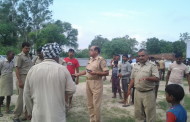
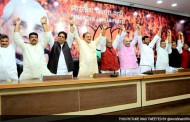
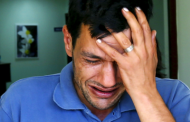
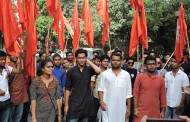
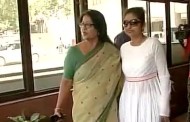

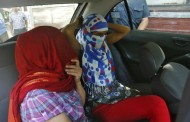
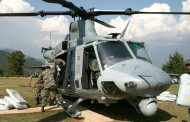
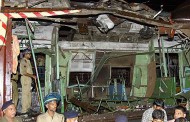





Recent Comments